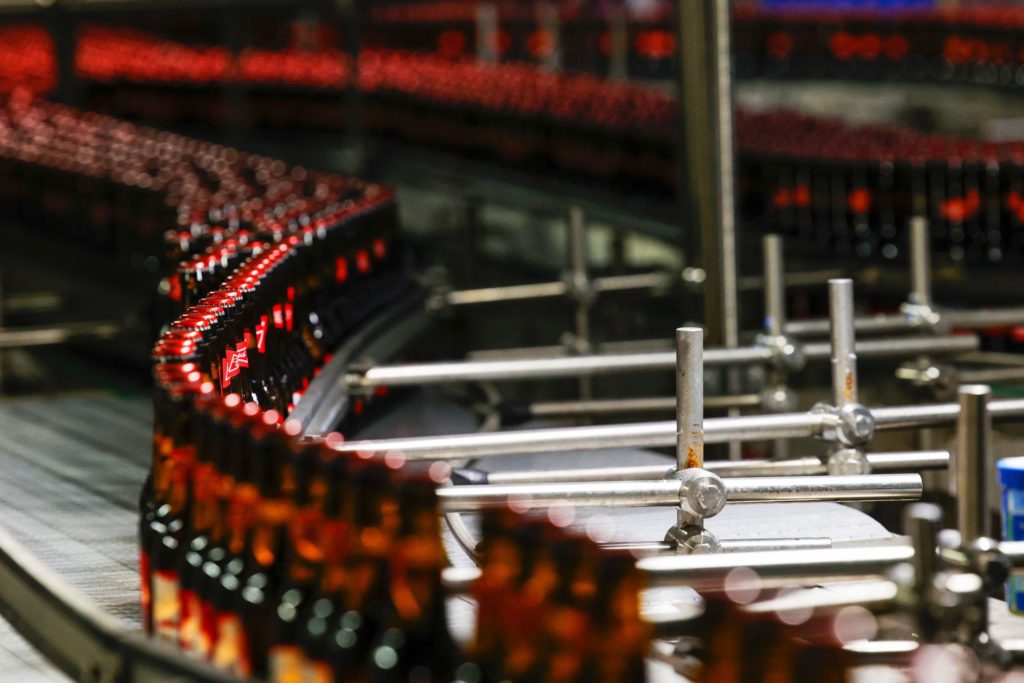(Bloomberg) — Beer giant Budweiser Brewing Co. APAC Ltd. is accelerating testing for new products in China as it works to keep up with rapidly shifting tastes in the world’s largest consumer market.
Spirits and beverages low on alcohol — or free of it altogether — are in the testing pipeline for the Chinese market this year, complementing its key high-end beer business, chief executive officer Jan Craps said in an interview on Thursday. The company also wants to answer demand from increasingly health-aware consumers, he said.
“There are some consumer occasions and functional needs that we can answer with beer, but others we can better suit with other products,” Craps said. “Chinese consumers are spoiled with choices, so we want to give more choices.”
The move by Anheuser-Busch InBev NV’s Asia-Pacific unit reflects a global strategy of diversifying out of beer, after Covid-19 slashed overall consumption at restaurants, bars and sporting venues. Some 90 of AB InBev’s brands are now making non-beer options in 40 countries, mainly in Europe and North America.
AB InBev saw a 40% jump in sales from new businesses last year to $1.2 billion overall, while beer revenue fell 10%. Still, it remains heavily reliant on beer sales, with the newer drinks accounting for less than 3% of its total revenue of $47 billion in 2020.
Budweiser APAC is among the foreign brands facing pressure to stay relevant in China, where shoppers are constantly bombarded by new brands and products and beer sales growth is stagnant. Consumer weakness in the country is showing across the board, mainly due to ongoing Covid flareups. Starbucks Corp. shares slipped this week after China same-store sales came in significantly below estimates and average customer spending there declined in its last quarter, while Yum China Holdings Inc. missed expectations.
Budweiser APAC posted earnings growth of 19% in the second quarter on Thursday, missing analyst estimates.
Craps attributed the miss to a volatile currency rate and a difficult comparison to the same period last year, when China had just started to recover from the pandemic. He said in a press release targeted to the earnings that the company was still maintaining “healthy momentum.”
Shares of the brewer fell 3% in Hong Kong on Thursday, to the lowest level since last November.
While overall beer sales aren’t growing in China, premium brews — Budweiser’s mainstay — are booming, as well as demand for beverages from energy drinks to packaged coffee and fruit tea, data from Euromonitor International shows.
Budweiser APAC’s quarterly sales, boosted by premium brands, rose 14% to $1.85 billion — almost in line with pre-pandemic levels in the same period in 2019 — but were still weaker than expected. Its premium and super premium brands posted accelerated sales growth compared with the first three months of the year, while overall revenue growth dropped as lower-priced brands saw sales declines.
Stiff Competition
Budweiser APAC faces a crowded field as it expands its repertoire in China. Shenzhen-based tea chain Nayuki Holdings Ltd. more than doubled its sales in 2019 and grew another 22% last year, raising $656 million in its Hong Kong debut last month. Sparling water and milk tea have led Warburg Pincus-backed healthy beverage maker Genki Forest to a valuation of $6 billion. Nongfu Spring Co. — China’s bottled water king, owned by the country’s richest man, Zhong Shanshan — is promoting its vitamin drinks and soda.
Other beermakers including Carlsberg AS and China Resources Beer Holdings Co. are also diversifying.
“The beverage market in China is highly competitive with very low consumer loyalty,” said Jason Yu, managing director of research firm Kantar Worldpanel Greater China. “Even the traditional giants have to start from the very beginning to build consumer trust and brand recognition with continuous innovation.”
Craps said his company maintains an advantage over younger startups that largely rely on online channels to distribute their wares, with a widespread sales network and mature supply chain. It plans to to boost premium beer sales this year by partnering with younger Chinese celebrities and launching fruity flavors intended to lure female consumers, he said.
China’s e-commerce platforms have also hastened the company’s testing process, Craps said, allowing products to be trialled solely online or in one city before an official launch. In the past products rolled out nationwide without much time to adjust to consumer preference.
“We are much faster than we were five years ago to launch new innovation. The development cycle is shorter,” Craps said. “To predict which segments work, the answer in China is to trial. Consumers are very different here and move quickly.”
Budweiser APAC began testing two new, China-only non-beer brands in May, selling lychee-flavored sugar-free sparkling water and peach energy drinks on Tmall.
The company in April also signed distribution agreements with Red Bull GmbH and Sazerac Co.’s Fireball Cinnamon Whisky to sell online and in venues including nightclubs and bars.
(Updates with further CEO comment, closing price from second paragraph.)
More stories like this are available on bloomberg.com
©2021 Bloomberg L.P.











